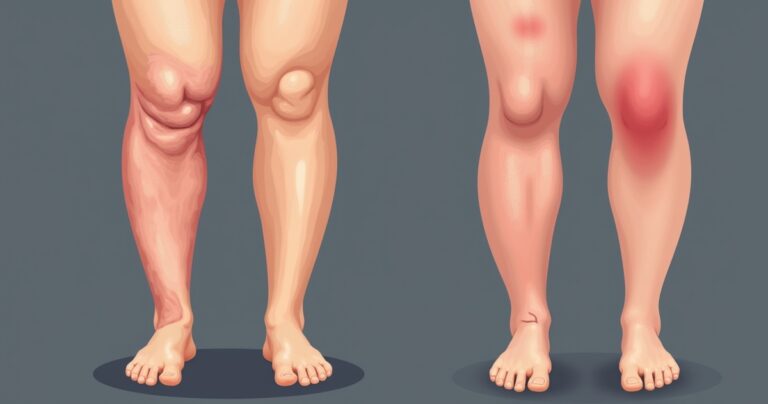Does Liposuction Lower Blood Pressure?
Liposuction is a popular cosmetic procedure known for its ability to remove excess fat and reshape the body. However, recent discussions have emerged around its potential health benefits, particularly about blood pressure. Can liposuction lower blood pressure? This article delves into the science and possibilities behind this intriguing question.
The Science Behind Fat Removal and Cardiovascular Health
Liposuction primarily targets subcutaneous fat, which is the fat located just beneath the skin. While this procedure is not an obesity treatment, it can influence cardiovascular health. The removal of fat may lead to improved blood circulation and reduced strain on the heart, potentially impacting blood pressure levels.
- Liposuction targets subcutaneous fat, not visceral fat.
- Improved blood circulation may result from fat removal.
- Potential reduction in heart strain could affect blood pressure.
Long-term Effects of Large-volume Liposuction on Metabolic Risk Factors
Large-volume liposuction, which involves the removal of significant amounts of fat, may have long-term effects on metabolic risk factors. Studies suggest that this procedure can lead to changes in insulin sensitivity and lipid profiles, which are crucial for cardiovascular health.
- Large-volume liposuction may alter insulin sensitivity.
- Changes in lipid profiles can impact cardiovascular health.
- Long-term metabolic effects are still under research.
How Does Liposuction Potentially Affect Blood Pressure?
Reduction in Visceral Fat and Its Impact on Hypertension
Visceral fat, which surrounds internal organs, is closely linked to hypertension. Although liposuction does not directly remove visceral fat, the overall reduction in body fat can lead to decreased visceral fat over time, potentially lowering blood pressure.
- Visceral fat is linked to hypertension.
- Liposuction indirectly affects visceral fat levels.
- Decreased visceral fat may lead to lower blood pressure.
Hormonal Changes Following Liposuction
Liposuction can trigger hormonal changes that may influence blood pressure. The removal of fat cells can affect hormones like leptin and adiponectin, which play roles in regulating blood pressure and metabolic processes.
- Hormonal changes can result from fat removal.
- Leptin and adiponectin levels may be affected.
- Hormonal shifts can influence blood pressure regulation.
Liposuction as a Potential Treatment for Hypertension
Clinical Studies on Liposuction and Blood Pressure Reduction
Several clinical studies have explored the relationship between liposuction and blood pressure reduction. While results are mixed, some studies indicate a potential decrease in blood pressure following the procedure, particularly in patients with obesity.
- Clinical studies show mixed results on blood pressure reduction.
- Some studies indicate potential benefits for obese patients.
- Further research is needed to confirm these findings.
Comparing Liposuction to Traditional Blood Pressure Treatments
Traditional treatments for hypertension include lifestyle changes and medication. Liposuction is not a replacement for these methods but may serve as a complementary approach for certain individuals.
- Traditional treatments include lifestyle changes and medication.
- Liposuction is not a replacement but a potential complement.
- Individualized treatment plans are essential for effective management.
Body Composition Changes After Liposuction
Effects on Body Weight and Fat Distribution
Liposuction can lead to changes in body weight and fat distribution. While it is not a weight-loss procedure, it can result in a more balanced body composition, which may indirectly affect blood pressure.
- Liposuction alters body weight and fat distribution.
- It is not a weight-loss procedure but affects body composition.
- Balanced body composition may influence blood pressure.
Impact on Metabolic Profile
The procedure can also impact the metabolic profile by altering levels of cholesterol and triglycerides. These changes can contribute to improved cardiovascular health and potentially lower blood pressure.
- Liposuction affects cholesterol and triglyceride levels.
- Improved metabolic profile benefits cardiovascular health.
- Potential impact on blood pressure through metabolic changes.
Liposuction Treatment Areas and Their Relation to Blood Pressure
Abdominal Liposuction and Its Potential Benefits
Abdominal liposuction is one of the most common areas treated. Reducing abdominal fat can have significant health benefits, including potential improvements in blood pressure and metabolic health.
- Abdominal liposuction is a common treatment area.
- Reducing abdominal fat offers health benefits.
- Potential improvements in blood pressure and metabolism.
Other Treatment Areas and Their Effects
Liposuction can be performed on various body areas, each with different potential health impacts. While the primary goal is cosmetic, these procedures can also influence overall health and blood pressure.
- Liposuction targets multiple body areas.
- Each area has different health impacts.
- Cosmetic goals align with potential health benefits.
Preparing for Liposuction with High Blood Pressure
Pre-operative Assessment and Medication Management
Patients with high blood pressure should undergo a comprehensive pre-operative assessment. This includes reviewing medications and ensuring blood pressure is stable before proceeding with liposuction.
- A comprehensive pre-operative assessment is necessary.
- Medication review is part of the preparation.
- Stable blood pressure is crucial before surgery.
Lifestyle Changes to Optimize Results
Adopting healthy lifestyle changes can enhance the results of liposuction. This includes a balanced diet, regular exercise, and stress management, all of which contribute to better blood pressure control.
- Healthy lifestyle changes enhance liposuction results.
- A balanced diet and exercise are key components.
- Stress management aids in blood pressure control.
Post-Liposuction Care and Blood Pressure Monitoring
Short-term and Long-term Follow-up
Regular follow-up appointments are essential after liposuction, especially for patients with high blood pressure. These visits help monitor recovery and ensure blood pressure remains stable.
- Regular follow-up is crucial post-liposuction.
- Monitoring recovery and blood pressure is essential.
- Ensures stable blood pressure levels.
Maintaining Blood Pressure Improvements
To maintain blood pressure improvements, patients should adhere to medical advice and continue healthy lifestyle practices. This includes regular exercise, a balanced diet, and stress reduction techniques. Liposuction cholesterol impact Liposuction can remove fat but it doesn’t directly lower cholesterol levels in the blood Maintaining a healthy diet and exercise routine is still important for managing cholesterol after liposuction Weight redistribution post-liposuction means fat can move to other parts of the body after removing it from one area
Liposuction partial elimination is a way to remove some fat from specific body areas It helps people get rid of stubborn fat that diet and exercise can’t fix Liposuction ineffective cellulite
Liposuction health impacts Liposuction can cause bruising swelling and pain after the procedure Some people may experience complications like infection or uneven results Liposuction volume restrictions Doctors limit how much fat they remove during liposuction to keep patients safe and healthy The amount of fat removed depends on the person’s body size and overall health
Liposuction lymphedema treatment Chin lipo hydration helps keep your skin smooth after fat removal It involves special treatments to add moisture to your chin area Emirati fat removal helps people in the UAE get rid of extra body fat Doctors use special methods to make patients look slimmer and feel healthier
Liposuction scarring minimal means the surgery leaves very small marks on your skin These tiny scars are hard to see and often fade away over time
- Adherence to medical advice is crucial.
- Healthy lifestyle practices maintain improvements.
- Regular exercise and diet are key components.
Combining Liposuction with Other Treatments for Optimal Results
Dietary and Exercise Recommendations
Combining liposuction with dietary and exercise changes can optimize results. A nutritious diet and regular physical activity support weight management and cardiovascular health.
- Dietary and exercise changes optimize liposuction results.
- A nutritious diet supports weight management.
- Regular physical activity benefits cardiovascular health.
Complementary Therapies for Blood Pressure Management
Complementary therapies, such as yoga and meditation, can aid in blood pressure management. These practices promote relaxation and stress reduction, contributing to overall health improvements.
- Complementary therapies aid blood pressure management.
- Yoga and meditation promote relaxation.
- Stress reduction contributes to health improvements.
In conclusion, while liposuction is primarily a cosmetic procedure, it may offer potential benefits for blood pressure management. However, it should be considered as part of a comprehensive approach to health, including lifestyle changes and medical treatments. Always consult with healthcare professionals, like Dr. Alexandre, to determine the best course of action for individual health needs.
FAQ’s
How long after liposuction can blood pressure changes be observed?
Blood pressure changes after liposuction can vary among individuals. Some may notice changes within weeks, while others may take longer. Consistent monitoring and lifestyle adjustments are crucial for observing and maintaining improvements.
Can liposuction improve overall cardiovascular health?
Liposuction can contribute to improved cardiovascular health by altering body composition and metabolic profiles. However, it should be combined with lifestyle changes for optimal results. It is not a standalone treatment for cardiovascular health.
Does liposuction lower blood pressure permanently?
Liposuction may lead to temporary reductions in blood pressure, but it is not a permanent solution. Long-term blood pressure management requires lifestyle changes and medical interventions. Liposuction can be part of a comprehensive approach to health improvement.



